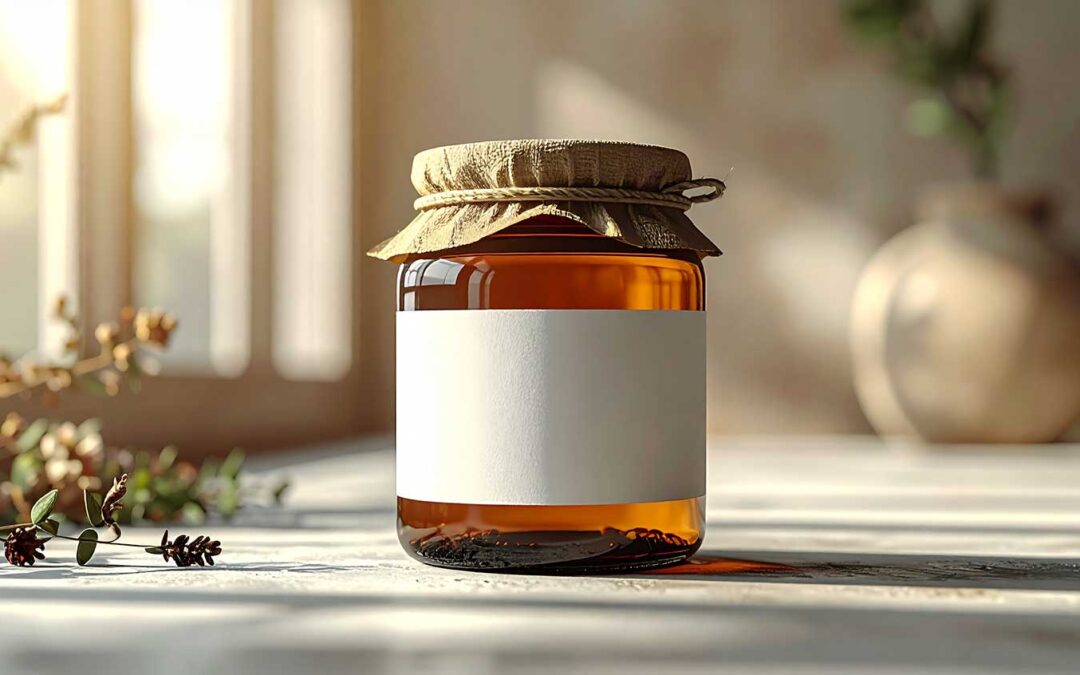Start with the Product Surface
For bottles, jars, boxes, or pouches, shape matters. A flat surface needs a simple rectangular label, while curved surfaces require more flexible sizing and materials to avoid wrinkles.
- Bottles: Measure the circumference and height where the label will sit. Remember to leave a small gap where edges meet, about ⅛ inch.
- Jars: Consider if you want a full wrap-around or front-and-back labels.
- Boxes or Pouches: Front-facing labels typically cover 30–50% of the surface for balance.
Standard Label Sizes (as a guide)
- Round bottles: 3” x 5” or 4” x 6”
- Jars: 2” x 3” or 3” x 4”
- Pouches: 4” x 5” front, 3” x 4” back
- Boxes: 4” x 6” front panel
(Tip: Always test with a paper mock-up before printing.)
Think Beyond Fit, Think Aesthetic
A label that’s too large can feel cluttered; too small, and it disappears. The goal is visual harmony: your logo, product name, and main info should be visible from a short distance.
Don’t Forget Label Shape
Unique shapes—oval, circle, or die-cut—can make your product stand out. Just ensure the shape aligns with your brand and the product’s proportions.
Material and Finish Matter Too
A smaller matte label can feel premium, while a larger glossy one can catch more attention. Let your 3material choice complement your design and product type.
There’s no one-size-fits-all solution, but when size, shape, and design align perfectly, your label becomes more than packaging. It becomes an experience. Get top quality labels that will help you drive more sales. Contact us on 604-255-3472 to get a quote.






